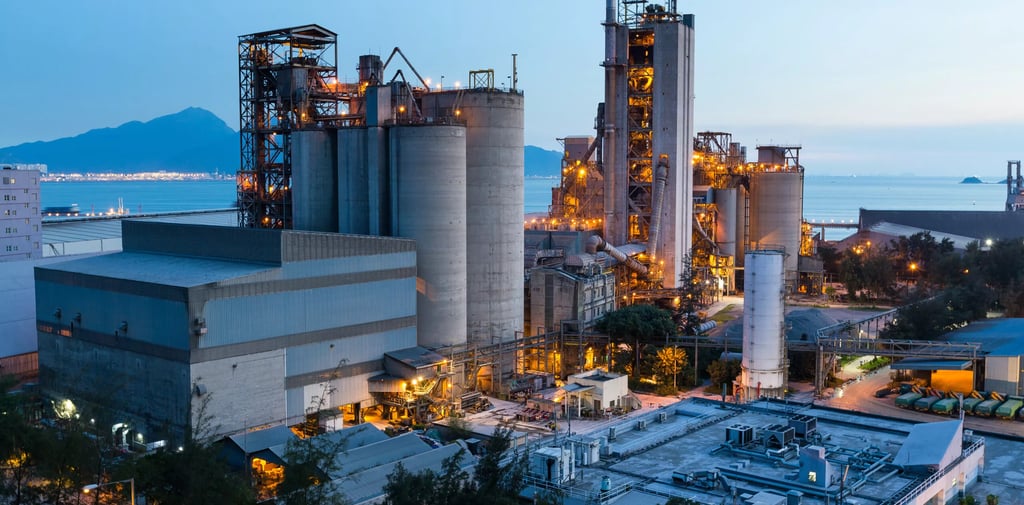European Firms Brace for Potential Trade War with US Amid Tariff Uncertainty
European businesses are on edge as uncertainty over potential US tariffs under Donald Trump’s trade policy impacts investment plans. Key industries, from energy to automotive and luxury goods, are assessing the financial risks.
BUSINESS
Ke Press Global
2/9/20252 min read


European companies are preparing for significant economic fallout as fears of a trade war with the United States grow. With US President Donald Trump keeping the European Union (EU) in his crosshairs after delaying steep tariffs against Canada and Mexico, businesses are facing investment uncertainty and potential supply chain disruptions.
Investment Hesitation and Industry Impact
Executives across multiple sectors are already feeling the strain. Markus Krebber, CEO of Germany’s RWE, one of Europe’s largest power producers, revealed that tariff threats are slowing renewable energy investments in the US.
“Potential import duties create huge uncertainty over what can be shipped into the US,” Krebber explained at a recent conference, noting that key components like rotor blades and batteries must be imported due to limited domestic manufacturing.
While some companies, such as luxury goods giant LVMH and oil major Shell, are considering expanding their US presence, others are urging the Trump administration to provide clarity to avoid further disruptions.
Analysts at Goldman Sachs warn that trade barriers could stunt economic growth, with European earnings per share growth projected at just 3% in 2025, well below market expectations.
EU's Response and Sectoral Concerns
The EU is considering concessions to avert a trade war, following Trump’s complaints that Europe does not sufficiently buy US cars and farm products while the US imports heavily from the EU.
Europe’s automotive industry is particularly vulnerable. Volvo Cars CEO Jim Rowan stated that while modest tariff increases could be managed, a significant jump would necessitate shifting more production to South Carolina to sidestep additional costs.
Similarly, French drinks group Pernod Ricard and London-listed Diageo are anticipating losses. Diageo estimates a $200 million hit to profits if Trump enforces his threatened 25% tariffs on Mexican and Canadian imports.
Shipping companies are also evaluating the consequences. Jan Rindbo, CEO of Denmark’s Norden, warned that if the EU retaliates with tariffs on US goods, businesses could face double the financial impact. Some companies may seek alternative suppliers from regions like South America, reshaping global trade flows.
Industry Reactions and Strategic Adaptations
Despite growing concerns, several European companies are exploring workarounds. TotalEnergies CEO Patrick Pouyanné revealed that energy exports could be rerouted to avoid tariffs between the US and China.
“The Chinese have asked us to replace US LNG with Australian or Qatari gas, while we redirect American LNG to Europe,” Pouyanné told the Financial Times.
Meanwhile, ArcelorMittal, the world’s second-largest steelmaker, is downplaying its exposure to potential tariffs. CFO Genuino Christino recalled that when Trump imposed 25% steel tariffs in 2018, the company absorbed the $100 million per quarter impact by adjusting prices.
Swedish defense firm Saab’s CEO Micael Johansson remains cautious, stating: “Trade wars are never good for anyone,” while acknowledging that it’s too early to predict the full impact.
Looking Ahead
As European leaders prepare for negotiations with the US, businesses remain on edge, weighing the risks of supply chain disruptions, higher costs, and shifting investment strategies. If tariffs escalate, the fallout could significantly impact global markets, with both the EU and US economies taking a hit.
© 2026. Ke Press Global. A Ke Harbor Company. All rights reserved.
FOLLOW KE PRESS GLOBAL ON :
Contact us


